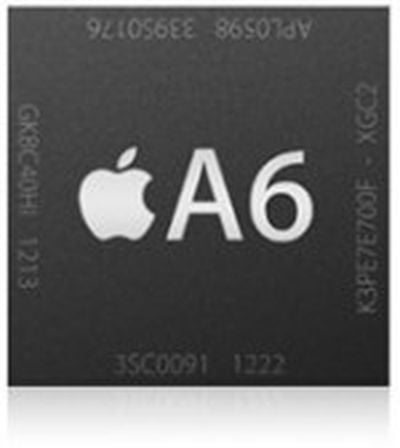 Semiconductor analyst Linley Gwennap has posted an interesting overview (via CNET) of the series of events that led to Apple's A6 system-on-a-chip, the company's first entirely custom ARM chip design. The report notes that Apple has likely spent in excess of $500 million on the project when including the purchase prices of chip firms P.A. Semi and Intrinsity.
Semiconductor analyst Linley Gwennap has posted an interesting overview (via CNET) of the series of events that led to Apple's A6 system-on-a-chip, the company's first entirely custom ARM chip design. The report notes that Apple has likely spent in excess of $500 million on the project when including the purchase prices of chip firms P.A. Semi and Intrinsity.
At this point, Apple has spent about $400 million to buy PA Semi and Intrinsity, tens of millions for a license to design its own ARM CPUs, and probably north of $100 million to support its CPU design efforts over the past four years. It appears that the end result will be that Apple ships a Cortex-A15-class CPU about three months before arch-enemy Samsung does. These three months happen to come during the big holiday buying season, during which the iPhone 5 could generate $25 billion in revenue. So that half billion dollars could be money well spent.
The report traces Apple's ARM-based chip development back to its 2008 acquisition of P.A. Semi. Beyond its license to use ARM cores, Apple's acquisition of P.A. Semi led the company to also obtain a rare license to develop its own ARM-based CPUs, as had been rumored in mid-2008. Apple then split the P.A. Semi team into two groups to focus on what would become the A4 system-on-chip and to build Apple's own ARM implementations.
While one group of PA Semi employees set to work on the Apple A4 processor using an ARM CPU core, another group began defining the microarchitecture for the new CPU. According to one source, Steve Jobs initially set an “insanely great” bar for the performance of the new CPU, but he eventually realized that his CPU team was limited by the same laws of physics that apply to everyone else. For whatever reason, the project took a long time to get through the initial definition and design phase.
As Apple iterated on standard ARM solutions for the A4, A5, and A5X, it continued to press forward on its own A6, which reportedly saw design completion in early 2010 and physical design work wrapping up about a year later. With the first samples of the A6 being delivered to Apple in the summer of 2011, the company continued to put the chip and its production processes through extensive testing ahead of full production started earlier this year for the iPhone 5.
The report notes that Apple is likely to follow a typical two-year design cycle with its own chips, working on a 64-bit ARMv8 solution for launch in 2014. As a result, Apple's 2013 devices will likely use ramped-up variants of the current A6 design, perhaps by moving from a dual-core CPU to a quad-core processor or by boosting the graphics capabilities of the package as the company did for the A5X in the third-generation iPad.



















